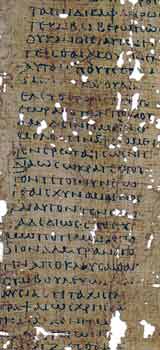
Classics and Philosophy Joint Program
 The Classics and Philosophy Program is a combined PhD program, offered by the Departments of Philosophy and of Classics at Yale, for students wishing to pursue graduate study in ancient Greek and Roman philosophy.
The Classics and Philosophy Program is a combined PhD program, offered by the Departments of Philosophy and of Classics at Yale, for students wishing to pursue graduate study in ancient Greek and Roman philosophy.
Suitably qualified students may apply for entry to the program either through the Classics Department for the Classics Track or through the Philosophy Department for the Philosophy track. Applicants to the combined program are strongly encouraged to submit a writing sample on a topic in ancient philosophy.
Applicants for the Classics Track of the Classics and Philosophy Program must satisfy the general standards for admission to the Classical Philology Graduate Program, in addition to the standards of the Classics Track of the Joint Program. The Program is overseen by an Interdepartmental Committee consisting of: Professors Timothy Clarke, Verity Harte, and Brad Inwood, as well as the Director of Graduate Studies for Classics and the Director of Graduate Studies for Philosophy.